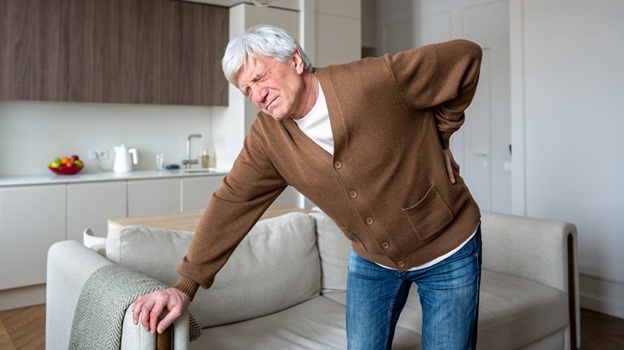For many older adults, limited mobility brings unique challenges that affect both physical health and emotional well-being. One of the most pressing concerns is the risk of developing pressure sores (also called bedsores) and mobility-related injuries like falls, muscle strain, or infections. These issues can lead to pain, hospitalization, and reduced independence. Fortunately, companion care offers practical, day-to-day support that can significantly reduce these risks while enhancing quality of life at home.
Here are seven ways companions help seniors prevent pressure sores and mobility-related injuries.
1. Encouraging Regular Repositioning
Pressure sores form when skin and underlying tissues are compressed for too long, cutting off circulation. Seniors who spend extended periods sitting or lying down are especially vulnerable. Companions can establish gentle repositioning routines—helping a loved one shift weight every one to two hours.
Even small movements, such as tilting slightly in a chair or adjusting pillows in bed, make a major difference. With consistent support, circulation improves, discomfort decreases, and sores are far less likely to develop.
2. Assisting with Safe Mobility
Falls are one of the leading causes of injury among older adults. For seniors with limited mobility, the risk increases when they attempt to move without support. Companions are trained to help with safe transfers, whether it’s rising from a chair, getting into bed, or navigating short walks inside the home.
They can also encourage light activity when appropriate—simple stretches or guided steps that keep muscles engaged. These small but steady efforts build strength, improve balance, and minimize the likelihood of serious accidents.
3. Monitoring Skin Health Daily
Early detection is critical when it comes to preventing pressure sores. Companions often assist with personal care and hygiene routines, which gives them an opportunity to check skin health regularly.
By observing areas most at risk—like heels, hips, elbows, and the lower back—companions can spot redness, irritation, or early signs of sores before they worsen. This consistent monitoring ensures that issues are addressed quickly with proper care, helping seniors avoid painful complications.
4. Supporting Proper Nutrition and Hydration
The health of skin and muscles depends heavily on diet and hydration. Seniors with limited mobility may struggle to prepare meals, maintain a balanced diet, or drink enough water throughout the day. Companions help by preparing nourishing meals, offering fluids regularly, and ensuring snacks and supplements are accessible.
Adequate protein, vitamins, and fluids strengthen the body’s natural defenses against skin breakdown, while proper hydration keeps tissues resilient. With this level of support, companions directly contribute to reducing the risk of both pressure sores and injuries.
5. Maintaining a Clean, Safe Environment
Household hazards can quickly become dangerous for seniors with mobility challenges. Loose rugs, cluttered hallways, or poorly lit rooms all increase the chance of falls. Companions help maintain a clean, organized environment and encourage safe practices around the home.
This includes tasks like adjusting furniture for easier navigation, ensuring pathways are clear, and checking that mobility aids such as walkers or canes are always within reach. A well-arranged space gives seniors the confidence to move safely while reducing accident risks.
6. Encouraging Engagement and Emotional Well-Being
Emotional health plays a subtle but powerful role in physical safety. Seniors who feel isolated or discouraged may be less motivated to move, eat well, or participate in routines that prevent sores and injuries. Companions offer not just physical help but also meaningful conversation, activities, and encouragement.
By keeping seniors mentally and socially engaged, companions help reduce the tendency toward prolonged inactivity, which is one of the biggest drivers of skin and mobility issues. A motivated and supported senior is more likely to maintain healthy habits that protect their body.
7. Coordinating with Families and Healthcare Providers
Companion care doesn’t exist in isolation—it often bridges the gap between families, seniors, and medical professionals. Companions can document changes in mobility, note skin health concerns, and share updates with families or doctors. This teamwork ensures that any potential problems are addressed promptly, preventing minor issues from escalating into medical emergencies.
This ongoing communication also brings peace of mind to families, knowing that someone is consistently watching over their loved one’s well-being.
Why Companion Care Matters
Pressure sores and mobility-related injuries are not inevitable outcomes of aging. With attentive support, proactive care, and a safe environment, they can often be prevented altogether. Companion care provides the daily assistance, encouragement, and monitoring that many seniors need to stay healthy and comfortable at home.
When seniors and their families explore care companions for seniors with limited mobility, they open the door to more than just help with chores or errands. They invest in an extra layer of protection against some of the most common—and most preventable—health issues tied to limited mobility.
Preventing injuries and maintaining skin health require consistency, patience, and awareness. Companions bring all three, offering a balance of practical care and emotional support. By assisting with repositioning, encouraging safe mobility, promoting nutrition, and maintaining a safe environment, they make a profound difference in seniors’ lives.
For older adults with mobility challenges, this type of dedicated care not only reduces medical risks but also restores dignity, independence, and peace of mind in the comfort of home.

